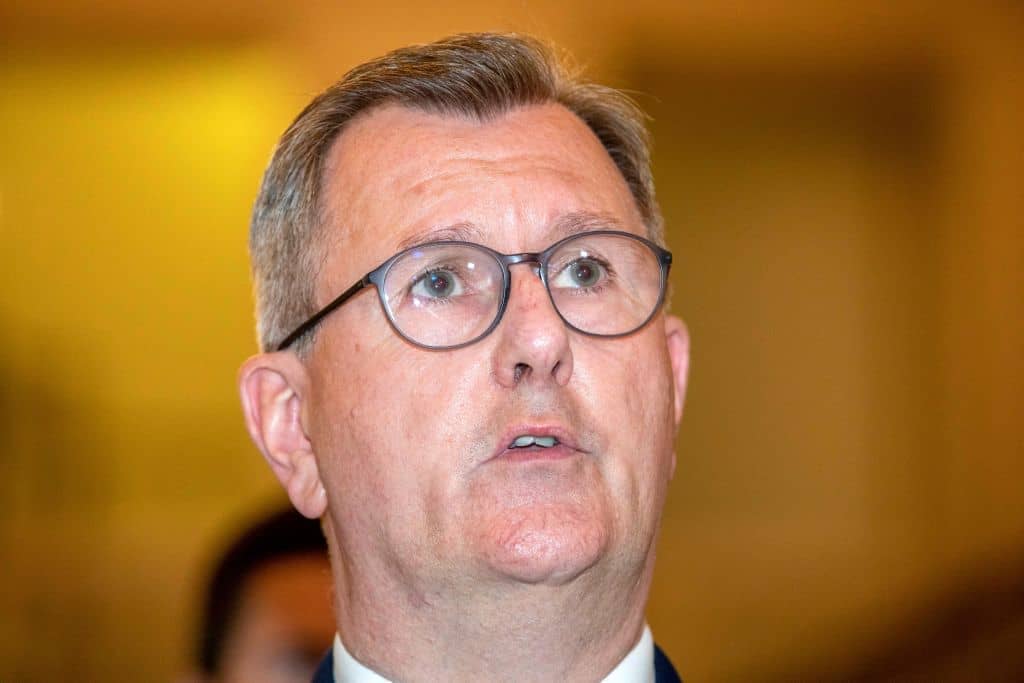Is the DUP intent on compounding the disaster of its recent election defeat which saw Sinn Fein returned as Northern Ireland’s largest party? It certainly seems that way. In the aftermath of that result, the DUP, the TUV (Traditional Unionist Voice) and other loyalists have been quick to point out that the unionist designation remains the largest at Stormont, albeit marginally. They argue that polling continues to show a majority in favour of Northern Ireland staying within the UK. This has been used to downplay Sinn Fein’s achievement last week. But this complacency is dangerous.
Contrary to the predictable hyperbole of recent days, a united Ireland is not imminent. Sinn Fein’s victory does not suddenly vanquish the range of barriers in its way, north and south. And any proclamation of profound and immediate constitutional change should come with an appropriate health warning.
The DUP, unionism’s largest party, has done nothing to try and understand why its campaign galvanised voters to rally behind Sinn Fein
But unionists managing to hold on to a slight, numerical advantage over the nationalists at Stormont should not be treated as some form of validation for a hapless campaign spearheaded by the DUP. A dangerous assumption seems to be taking hold that, should a referendum happen, everything would be alright on the night. The EU referendum shows why this is a mistake. What unfolded last week should be regarded as a shot across the bows and an incentive for political unionism to get itself in order. Yet the mood music emerging from the DUP since the election suggests the party is not willing to learn its lesson.
The DUP, unionism’s largest party, has done nothing to try and understand why its campaign galvanised voters to rally behind Sinn Fein and failed to win round those who decided to vote for the constitutionally agnostic Alliance Party. Instead, the party has doubled down on its failing approach.
The party’s leader Jeffrey Donaldson has reiterated over recent days that until the Northern Ireland Protocol is resolved to the DUP’s satisfaction, his party will not enter the Executive. Assuming nothing can be done by the Government on the Protocol – reports of its unilateral junking by Liz Truss should be treated with caution by the DUP, given they have been marched up this hill before – another election will have to be held if the parties cannot form an Executive over an elongated negotiation period. A deadline of the end of October, with a subsequent January 2023 election has been mooted. But a new election won’t suddenly undo the disaster of what unfolded last week. If anything, it will make voters more likely to turn to Sinn Fein.
Donaldson, who has yet to confirm whether he will leave his Westminster seat to take up the Assembly equivalent he won last week (and risk a troublesome by-election for the DUP), seems intent on taking his party’s decline – kickstarted in earnest by Arlene Foster – to its natural conclusion.
Since 2016, the DUP and unionism has engaged in a cycle of dwindling returns. Another election – assuming the DUP decides to fight it on its current intransigent prospectus – would be an act of further self-sabotage. Sinn Fein will portray this to the nationalist electorate as a rolling denial of the result of a fair and free democratic exercise and capitalise accordingly – an act of chutzpah given their own elastic attitude towards collapsing the Executive in the past. However, giving Sinn Fein the opportunity to pose as the reasonable party here is an invidious feat for any unionist to achieve. By casting itself as the perpetual disruptor, the DUP is denying itself the most plausible avenue for restoring its position as the largest party. The Alliance party won 17 seats last week, an increase of nine, and it is here – that part of the electorate which would likely vote to keep Northern Ireland in the UK but have little truck with the unionist parties – where the DUP should be focusing their attentions. They are unlikely to have some Damascene conversion to unionism under the DUP’s current direction.
Devising a strategy which addresses why the unionist designation at Stormont has declined from 56 in 2016 to 37 in the space of six years should be the focus of the DUP and all those who are concerned with ensuring unionism can continue to grow. Last week should be the death knell of ‘we have what we hold’ unionism as a feasible electoral strategy. Is someone in the DUP brave enough to make that point?






Comments